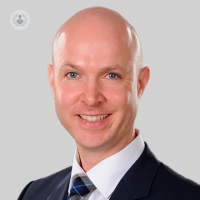Why singers lose their voice and what they can do
Written in association with:It’s not uncommon for hardworking professional singers, including pop stars such as Adele, Miley Cyrus and Elton John, to undergo vocal node surgery in order to save their tired, overused voice. Here, one of our expert doctors Professor Judd explains just why exactly singers might lose their voice and what an ear, nose and throat specialist can do to help.

How do the vocal cords work when singing?
Generally, when we sing, we create vibration in the vocal cords and we manipulate this to create speech and sounds of words. The manipulation can be used by the lips, tongue and palate but ultimately requires the voice source, which is the vibration of the vocal cords. Often, this is where the problem lies in relation to singing.
The voicebox contains cartilage and muscles. When it comes to singing, these muscles need to be used repeatedly. Therefore, they can tire quite easily or become too tight. All of the vocal cords themselves are surrounded by muscles, which can be used to relax and pull the vocal cords open to breathe in. They can be used to pull the cords together and tighten them to sing louder or stronger.
The muscles on the outside of the larynx can tighten the vocal cords to increase the pitch of the voice, or relax the vocal cords to decrease the pitch of the voice.
What problems can singers face with their voice?
A very common problem in singers is too much singing and repeatedly singing can lead to too much tightness in these vocal cord muscles. That way they lose their fluidity and therefore you are not able to glide up or sink down in the pitch of the voice.
We also find that the voice can sound strained and that we may have problems with voice or pitch breaks.
This can be remedied in the first instance by resting these muscles. With overuse, as with any muscle, they can become tired and if we're pushing to use them when they are tired, they will often cause tightness.
Muscle tension dystonia is a really common problem and ultimately may require voice therapy. Another problem that can happen with the vocal cords are vocal nodules. What occurs here, particularly in female singers, is the anterior, or front third of the vocal cords, can come together quite tightly.
If this is done repeatedly, over a number of months, it can lead to small areas of inflammation in that part of the vocal cord that bangs together with the other side too frequently. As with calluses on fingers when we overuse and rub them very frequently, that's essentially what's happening on the vocal cords, with small areas of inflammation that we term nodules.
What tips can you give singers when it comes to looking after their voice?
These problems can be remedied by resting the voice and using it appropriately with singing lessons and correct techniques. Hydration, drinking plenty of water and lots of steam inhalation before and/or after a heavy schedule of singing allows the vocal cords to rest and any inflammation to settle.
If you are having problems with your voice that are not settling after a few weeks, it's always wise to visit your GP and to get a referral to an ENT surgeon who holds a specialist interest in voice problems.
If you would like to visit Professor Judd about any voice problems that you’re having, you can book an appointment to see him via his Top Doctor’s profile.


